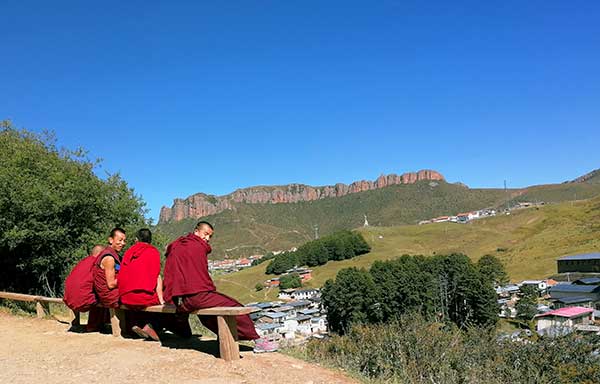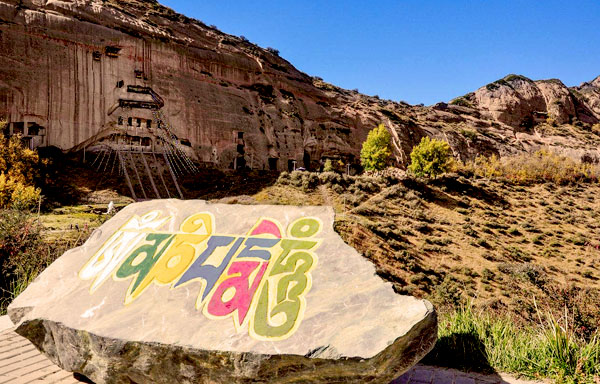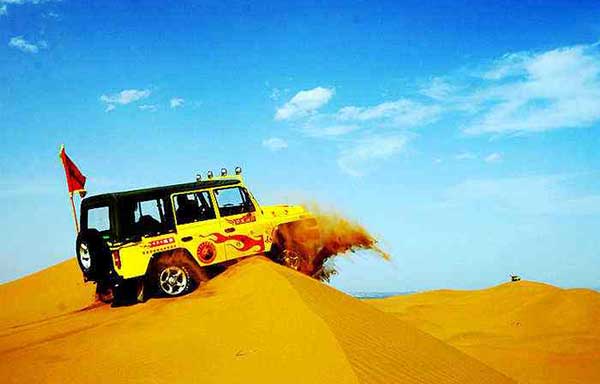- By admin
- In HistoricalFigures
- 2018-01-08
The story of Polo's family
•The Rise of the Mongols
The Tang dynasty collapsed in 906 CE. After sixty years of bloody wars, a new dynasty called the Sung arose. But other groups also had their eyes on China. Nomadic groups constantly attacked north China and eventually took control there. The Sung remained strong in the south but cut off from the Silk Road.
This situation continued until 1206 when a new power grew up in Central Asia. In this year, Genghis Khan was elected supreme ruler of the Mongols. Under his guidance, the Mongols quickly established an enormous empire which included all the land north of India, almost to the Mediterranean coast, and threatened south China. The Chinese faced better organized and more determined opponents than any they had encountered before.
In 1260, Genghis Khan’s grandson, Kublai Khan, became Great Khan and moved the Mongol capital to Beijing in north China. This indicated his commitment to conquering all of China.
•The Polos Set off
Five years later in 1265, on the other end of the Silk Road, in the Italian city of Venice, two brothers prepared for a trading mission to Constantinople. They dealt primarily in jewels, but also handled salt, furs, wine and even in slaves as opportunity arose. They were Niccolo and Maffeo Polo, father and uncle to the famous Marco Polo. They were the first Europeans to set foot in China.
The Polos did not set out for China. Rather, like most merchants, they traveled from city to city and decided on their next destinations based upon the trading opportunities and the political situation. The Polo brothers were accidental explorers at a time when Asia was unified under Mongol rule. As long as the Mongol rulers were not feuding among themselves, they encouraged trade and protected merchants in their realms.
The Polos stayed in Constantinople for six years before moving on. But the way home was blocked by pirates on the seas. So the brothers crossed the Black Sea. Here they entered into Mongol territory. Niccolo and Maffeo set out for the capital of the Mongol province and were introduced to the local khan. They gave him most of the jewels they had gained in Constantinople. He was quite pleased and rewarded them with gifts worth double the jewels.
After a year in this region, they prepared to return home. But war broke out between this ruler and the khan to the south, blocking the route home. So the Polos turned east and south, hoping to find a way home there. They had learned to speak Mongolian, so they could travel in Mongol territory quite well.
• Entering Mongol Territory
They moved east over the top of the Caspian Sea before heading south to Bactria, a key trading city on the main corridor of the Silk Road. People and goods from every part of Asia were jammed into the walls of this city. The Polos were the only Europeans in the city and so were the objects of curiousity in the town. They stayed in Bactria three years, trading and planning, but also learning the languages and cultures of Asia. But Bactria too became sealed off by war.
Fortunately, when an imperial messenger of the Great Khan arrived in the city, he heard of the strange Europeans living there and visited them. After a friendly meeting, the messenger said, “The Great Khan has never seen a European and would like to meet one. If you will accompany me to China, I assure you he will receive you warmly and will treat you with great honor and bounty.” So the two men set off for the Great Khan’s court in the company of imperial soldiers. Even so, the journey across the mountains and deserts was hard, taking more than a year.
• The Great Khan Meets with the Polos
Kublai Khan did welcome them to his spectacular court in Beijing. He gave them luxurious quarters and held a feast in their honor. He questioned them thoroughly on the countries and rulers of Europe and on the way that they fought and governed. He was also curious about Christianity. The Khan asked the Polos if they would act as messengers to the Pope. The Khan wanted the Pope to send 100 men learned in Christian teachings and European knowledge. He wanted to know what Europeans knew. He also wanted these men to debate with other religious leaders to demonstrate the superiority of Christianity. Finally, he asked for oil from the lamp which burned in the crypt where Jesus was believed to have been buried. This oil was believed to heal all sorts of diseases.
To ensure their safe passage, the Khan gave them a golden tablet on which he inscribed his orders that the Polos be given anything they might need along the way. Even with this assistance, the trip west took three years.
• Return to the Mediterranean
When the travelers reached the Mediterrean, they discovered that the Pope had died and his succesor had not yet been selected. Since they could not complete their mission until a new Pope had been chosen, they returned to Venice. In Venice, they found that in their long absence, Niccolo’s wife had died and his young son, Marco, was now a 15-year old. Marco was a smart and capable youth. For two years, the Polos waited for a new Pope to be elected. Finally, thinking they could wait no longer, the two brothers and young Marco set off for Jerusalem to acquire at least the oil for which the Great Khan had asked.
In the Holy Land, they acquired the sacred oil and a letter to the Khan from the new Pope who had been elected during their voyage. And so equipped, the Polos set out again into Mongol territory. They again crossed the heart of Asia and arrived at the court of Kublai Khan three years later. This was the beginning of a 24-year stay in the service of the Khan. Marco Polo’s record of their journey, The Travels of Marco Polo, tell this story and depicts the world at the height of Mongol power.
During this time trade flourished under the protection of Mongol might. Many Europeans followed the Polos’ path, though few saw as much of Asia as did this family of travelers.
Why Choose Us?
We are the top Silk Road tour operator based in Dunhuang, China. We focus on providing well designed Silk Road China Tours with resonable price and thoughtful service.
- Easy & carefree booking
- The best value
- Great travel experience
- Locally operated
Hot Tours
-

6 days Gansu tour to Binglingsi, Xiahe and Langmusi
Tour type : Private tour Price : from *** Destinations : Lanzhou - linxia - Xiahe - Langmusi - Hezuo - Lanzhou -

12 Days Gansu Highlights Tour
Tour type : Private tour Price : from *** Destinations : Xian – Tianshui – Lanzhou – Xiahe – Langmusi – Hezuo – Zhangye – Jiayuguan - Dunhuang -

10 Days Silk Road Classic Tour
Tour type : Private tour Price : from *** Destinations : Xian - Zhangye - Jiayuguan - Dunhuang - Turpan - Urumqi -

5 Days Zhangye - Alxa youqi Highlights Tour
Tour type : Private Tour Price : from *** Destinations : Zhangye - Alax youqi - Zhangye

